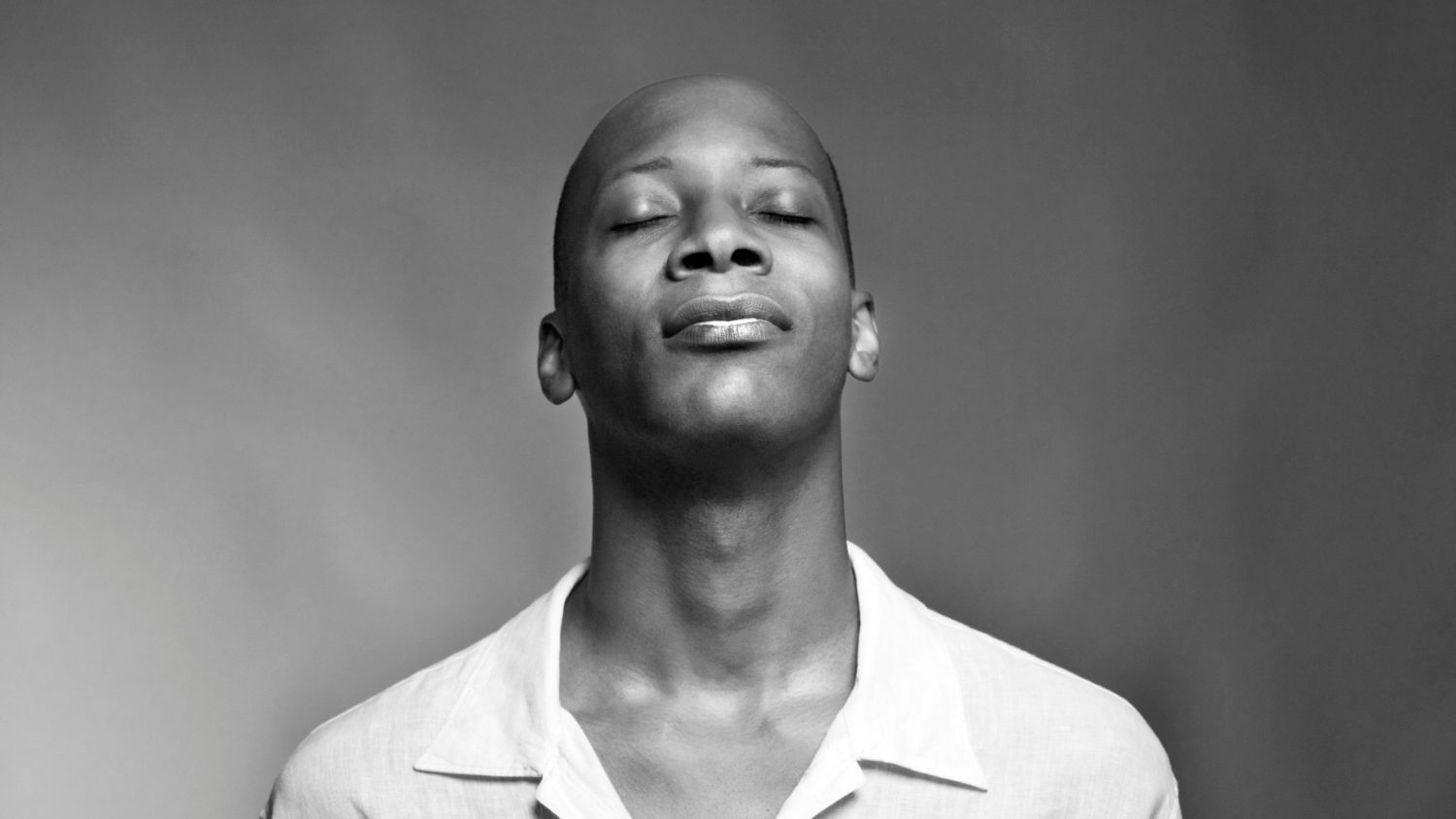When our inner alchemical or spiritual work has become another thing on the to-do list and we feel the heaviness of another box to check, we’ve lost touch with our WHY. We’ve forgotten what we set out to do and we’re lost in the forest of musts and shoulds.
Your inner work is not another chore. It’s the rebellious act of breaking free from a program of beliefs based in fear. A program that has been running you and directing your thoughts, emotional reactions and decision making. To be able to take it apart and feel free, happy and at ease, you need to rebel and do some things opposite to what that old program of conditioning wants you to do.
In this episode of the Uncover YOU podcast I share my perspective of rebellion that always got me to come back to or deepen my practice.
Let’s dive in.
Listen to episode 28 here:
The voice that never shuts up
Most of the thoughts you think each day are the same as the day before. You repeat the same patterns of thoughts in everything from your practical tasks and routines to what you might think of as your deeper reflecting thinking.
- You think about switching on the coffee machine and taking a shower.
- You think about how you’re late for work again and why you’re always late.
- You think about how others see you and what they think of you. And your thoughts comment on the people you pass in the street.
- You think how it’s time for you to stop procrastinating and start with those projects you really want to do.
- Someone bumps into you on the subway and you go to the reaction of irritation and blame. And the moment after a feeling of shame hits you because you read a book about how your thoughts affect your life and you should really start working on positive thinking. And mindfulness. And working out!
You have this voice in your head that basically never shuts up.
Yet you seldom stop and reflect on where these thoughts and reactions come from. You seem to accept the idea that it’s YOU thinking these thoughts, that the thoughts ARE YOU. Which is very far from the truth.
If you start observing this voice from the passenger seat, listening to it like it was an actual separate person behind the steering wheel (on a very long road trip that you kind of regret saying yes to), you would most likely notice a few things:
- It has a lot of opinions, about you and others and the weather and the state of the world
- It never shuts up
- What it talks about doesn’t really seem important as long as it’s talking and expressing SOMETHING
- It switches sides like a bloody record changer… One second it’s SURE that your friend isn’t calling because they forgot about you and when they do call and say they were preparing a surprise for you the voice is equally SURE that you must have the best friend in the world.
- It’s SURE about a lot of things even if they contradict.
- It has preferences about most things and lots of reasons to why it’s good or bad.
- Negative comments, positive comments – it’s all the same voice, just more or less pleasant.
So where does this voice come from? And what is driving all these automated thoughts and opinions?
Your internalized program of your external conditioning
Your thoughts are part of a bigger structure of patterns that you’ve built over your lifetime. Things you’ve been programmed to believe, feel and react to. “Programmed?” you ask, “No one has forced me to believe or think anything. I’m free to think whatever I want.”
The programming I’m talking about is not anyone holding a gun to your head or brainwashing you in front of a tv screen in a dark room. That kind of oppression unfortunately exists too but what I’m talking about happens to all of us, even if you consider yourself living in a free country with supporting family structures.
Our thinking and emotional reactions are being conditioned from early on through our upbringing, our relationships to friends, family and lovers, the society, culture and belief systems we grow up in.
Let me give you an example:
We depend from birth on the love from our parents or caretakers and have a built-in signaling system to get the food, protection and care that we need. When you’re a few years old you start experiencing how the love that you might have felt flowing from your parents is actually conditioned.
There are things that are RIGHT to do which will (possibly) get your parents’ approval and love, and things that are WRONG which will make them angry. Your mom yells at you for creating a crayon masterpiece on the living room wall. Your dad grabs you by the arm and looks really angry when you want to enjoy the sight of yet another handful of spaghetti splashing on the floor.
I’m not saying that your parents should have let you do whatever you wanted when you were three. But this is the birth of conditioning that will lay the foundation of your own belief system. What you think you need to do to be loved and accepted.
This continues and get’s more sophisticated with time and repetition. The conditioning and emotional wounds that your parents experienced when growing up will get re-created when relating with you and your siblings.
Everyone you interact with has their own version of the program, right/wrong, forbidden emotions and the fear of not being accepted and loved. Every time someone hits an ever so tiny wound in you your subconscious will detect danger and your nervous system will fire the same neurons. Every time they get fired in the same way they will form a deeper pattern.
If your parents or other adults were abusive and you experienced trauma in your childhood, then this programming will most likely be connected to even deeper emotions and protective systems like suppression and aggression.
These repeated thoughts and behaviors will after years become something you accept as part of your personality: “I’ve always been very shy” or “I have a bad temper and so did my dad, but I cool off quickly, that’s just the way I am”. Or it becomes something you deny and want to keep hidden which will create layers of shame and guilt every time it shows up.
If we never look at and realize all this it’s easy to believe that we created our thoughts from free will.
There is a lot to say about how the program of beliefs gets created (which we go into deeply in the self mastery courses). For now, I wanted to give you an idea of what’s behind the voice in your head and why it most likely will put up some resistance when you try and do something different.
Discovering the power to change the program
Once you’ve realized that this program is there and that it’s running most of your thoughts and decisions you might go through one or more of the following reactions:
F*CK
How do I get it to shut up!??
I can just as well lay down and die, there’s nothing I can do…
Wait a minute – if I created this program I should be able to create a different one?
These are all common and understandable responses. But if you haven’t contemplated the last one yet, I suggest you do.
There’s nothing wrong with YOU, the core and essence of you. The hardware. But you have a software that might not be working optimally for your own happiness and peace. The good news is you can upgrade or re-write it. Truth is it takes effort, motivation and determination. More good news is that it most certainly doesn’t have to take as long to change it as it’s taken to create it.
There are several different ways to change your program. Most spiritual paths as well as therapy. self-development and other westernized options talk about this.
A common trap is to try and change the program by adding other thoughts and beliefs on top of the existing one or just replace existing behaviors with others. I think I’m ugly so I’ll start repeating to myself that I’m beautiful. I’m overeating and calming my emotions with food so instead I’ll start exercising and get really fit.
Underneath is still an unresolved emotion that you don’t want to look at. What this usually results in is just an even more intricate web and layers of compensating strategies to avoid the pain underneath. To make the sustainable change you need to be ready to look at what’s hidden.
A crucial step towards true change of the program is to start observing it. Watching it and see what it does without engaging with it. Take on what many traditions call the observer point of view, grow awareness, and place a seed of doubt to whether the voice in your head is actually telling the truth.
Let’s look more closely at what that rebellion that leads to true change could be.
What your mind-program wants you to do
To understand what we rebel against we first need to understand what the program of the mind wants you to KEEP doing. It needs you to put your faith in the stories it’s telling. To do that it has a few tricks up its sleeve. It wants you to:
⇒ Stay busy and in your habitual patterns
When you are busy you’re more prone to stay on auto-pilot and don’t have time to slow down, observe and question.
⇒ Look where the program is pointing – not at IT
All the opinions and explanations it has are usually pointing at things in your external world, or at other parts of yourself that the voice is criticizing. It wants you to believe that’s where the problem is at and to look in that direction. Not to turn around and start observing who is pointing.
⇒ Not be able to separate emotion from the story
It’s the emotion that makes an opinion or thought from the mind seem true. As long as you can’t take the two apart and instead jumble them together it will seem like the emotion is evidence for the thought.
⇒ Not have control over your attention
When your ability to hold or direct your attention consciously is weak, your attention will get pulled around to whatever is the most shiny at the moment. Taking control of your attention is taking your personal power back.
⇒ Keep things hidden and feel shameful about them
If we believe the story that something’s wrong with us because of what we’re feeling and thinking, we tend to hide those parts of us and to speak about them. That’s how they stay unintegrated and keep ruling our lives from the unconscious.
If you’re guessing that rebelling against this program includes doing some of the opposites of the list above, you’re correct.
What rebellion looks like
Doing the opposite to what the program wants you to do could be summarized:
1.
Slow down to observe – turn your attention towards the program, the inner voice speaking and the emotions
2.
Learn to sit with the uncomfortable emotions that the protection parts have been trying to avoid
3.
Learn to experience yourself beyond your mind
This is exactly what the self mastery work is based around, and this will hopefully also give you a new and deeper perspective on meditation.
The rebellious and powerful act of meditating
You see the pictures of blissful people practicing meditation. You read the articles about reducing your stress levels, boost your brainpower and be a better person. And studies, brain scans and many people’s experiences seem clear – meditation can lead to huge shifts in how you think, react and behave. As well as give you a deeper understanding of who you are.
However, what always got me to sit down and go within was the thought that meditation is a rebellious act. An antidote to a program of thoughts and beliefs running me. Who wants to be controlled by an unconscious force that directs your thoughts, reactions and emotions? Not me and it got me motivated to do the work, again and again.
In all its peaceful appearance – meditation is extremely powerful.
I’ve heard many people say, “Meditation is not for me, as soon as I sit down my thoughts are running and I get really restless.”
It’s all about expectations. Did you think you would sit down and feel absolute bliss and connection to the universe?
Let me set that straight: Most likely you will experience a lot of resistance and thoughts going haywire in one way or another and that’s exactly what the practice of meditation is in the beginning. To be with all the uncomfortableness, restlessness and impulses and Not. Back. Down.
With a good teacher or motivated self-exploration, you will find that meditating is a way to get to know the program and thoughts as well as discover pockets of silence and peace underneath the noise. Over time those pockets will grow, and you will experience longer periods of peace. That’s when your meditation practice will deepen, and the magic starts happening. When your mind becomes still and you detach from any desire to be anywhere else. That’s when old structures can crumble and you get connected to a more true and rich experience of yourself.
There are more active practices to take apart the old program, the self mastery work that I’m teaching is full of them for example. Your meditation techniques can also differ over time depending on what you want to practice. But if it’s a good practice it will be an invaluable tool for a clear and calm state of mind where change can take place. Just don’t expect it to start out that way.
Sit down and resist the impulse to get up over and over again. Watch the thoughts screaming for your attention and wanting to pull you someplace else. And patiently will your attention to return to the present moment again and again. This is a rebellion against a program you no longer want running your life. As well as an act of love for a peaceful world.
If you really want to uplevel your rebellion by learning to get a hold of your attention and experience yourself as something more than your mind, then Beyond the Mind is the perfect place to do so. It’s the meditation course that goes way deeper than your regular meditation app and where I break down the steps to expand your consciousness.
I open up the registration around 2 times per year, but you can read more here and put yourself on the waitlist.



